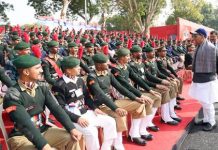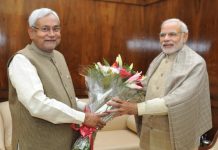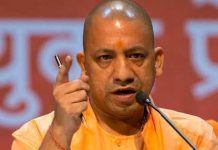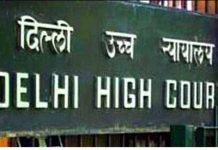Observers in the Union Territory believe that the BJP, buoyed by a landslide win in Maharashtra following the recent setback in the general elections, is under no pressure to restore J&K’s statehood and relinquish its indirect control over the region in a hurry. A report by Riyaz Wani
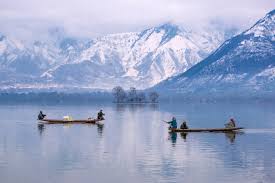
Now that the BJP has won Maharashtra election by a landslide, will the outcome impact Jammu and Kashmir? A section of opinion in the union territory believes that it will. One of the significant outcomes could be the delay in restoration of statehood. With the saffron party back in the ascendant after a setback in general elections, it will be under no pressure to let go of the control of J&K that it indirectly rules.
The BJP is the second largest party in the J&K Assembly with 29 seats, all of them from Jammu where it continues to wield significant influence. The only thing that prevented it from forming the government in the UT was that the voters in Kashmir largely rallied around the National Conference that got 42 seats. The NC-Congress-CPI(M) have 49 seats between them. And in the case of any unlikely defection in the NC in future, the BJP could very well be forming J&K’s first Jammu-dominated elected government. However, even otherwise, the BJP-led central government is a de-facto ruler in the existing hybrid arrangement with power being shared between the Lieutenant Governor Manoj Sinha and the NC-Congress alliance – albeit unequally in favour of the former.
Will New Delhi let the newly elected government call the shots by restoring statehood? It seems unlikely in the near term. The BJP-led centre has been in complete control of J&K over the past six years. It abrogated Article 370 in August 2019, stripping J&K of its special status and reorganizing the region into two Union Territories—Jammu & Kashmir and Ladakh. Both Prime Minister Narendra Modi and the home minister Amit Shah have time and again assured the restoration of statehood to J&K at an appropriate time. What, however, they have not given so far is a timeline. So, there is a section of people who believe that statehood might take longer than expected. And if and when statehood is restored, it is expected to be more or less a truncated one just like that of Delhi.
Considering the troubled state of affairs prevailing in the UT, the Centre, it is believed, is unlikely to let go of control on the security agencies and the allied security related matters, lest it unravel the gains made in recent years. The recent rise in militancy-related violence is likely to further dissuade the central government from handing over complete control over the region to an elected government. Should this happen, a future governor will continue to wield a strong say in the affairs of J&K.
However, the NC remains hopeful of an earlier reinstatement of the statehood after Omar Abdullah met the PM Narendra Modi and the HM Amit Shah soon after taking over as the chief minister and presented them the statehood resolution passed by his cabinet.
“I have had successful meetings in Delhi where I received assurances at the highest level that the commitments made to Jammu and Kashmir, particularly with regard to our governance model, will change. Once full statehood is restored, there will be no loopholes to exploit,” he said while speaking to administrative secretaries in Srinagar in early November.
Newly-elected CM Abdullah emphasised on his government’s “commitment” to restoring full statehood and reforming the region’s governance model. Without naming anyone, he said, “Some people may try to exploit the system and find loopholes in the system that we have in J&K at the moment. But this is very much a temporary phase.”
If there has to be a follow-up on these assurances, it has to be now. The BJP has no electoral compulsions in the next few months. That is until Bihar and Delhi polls next year. December will be the month to watch out for.


